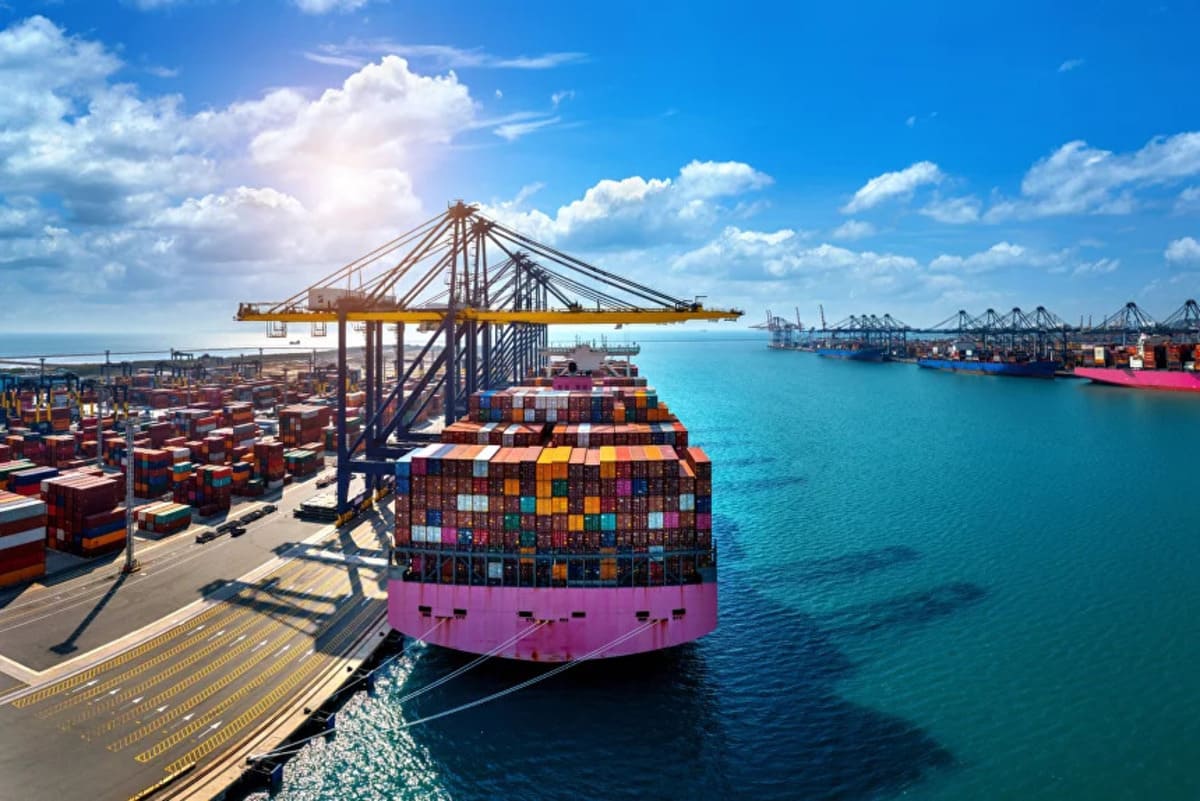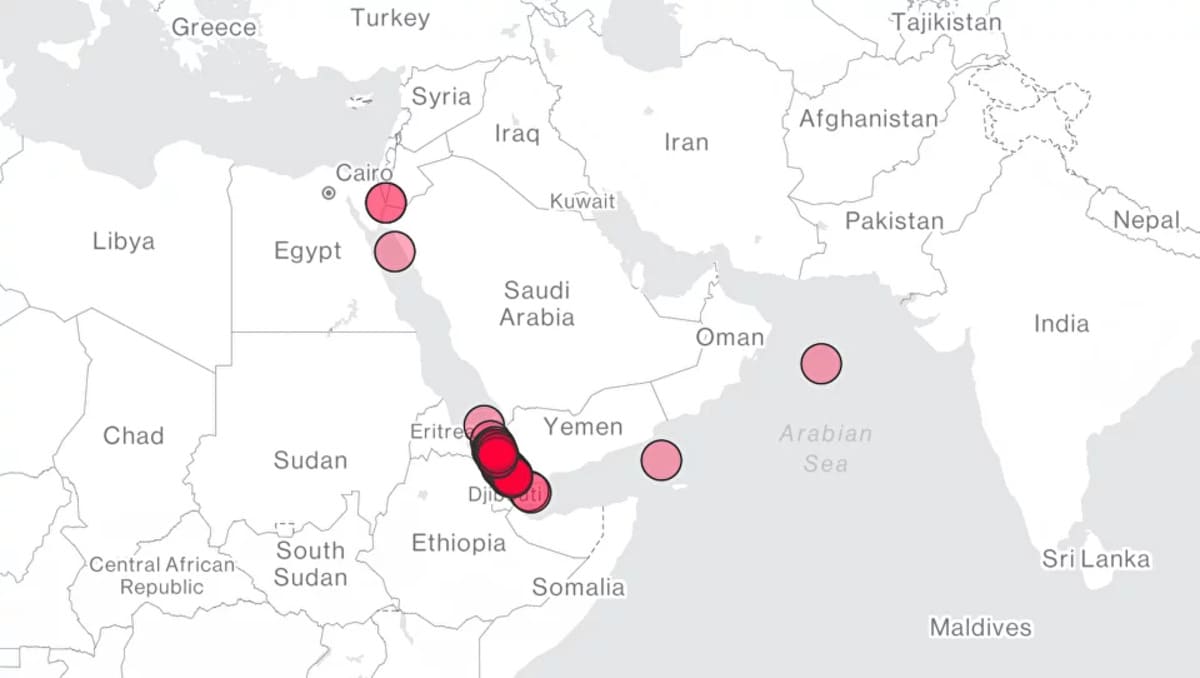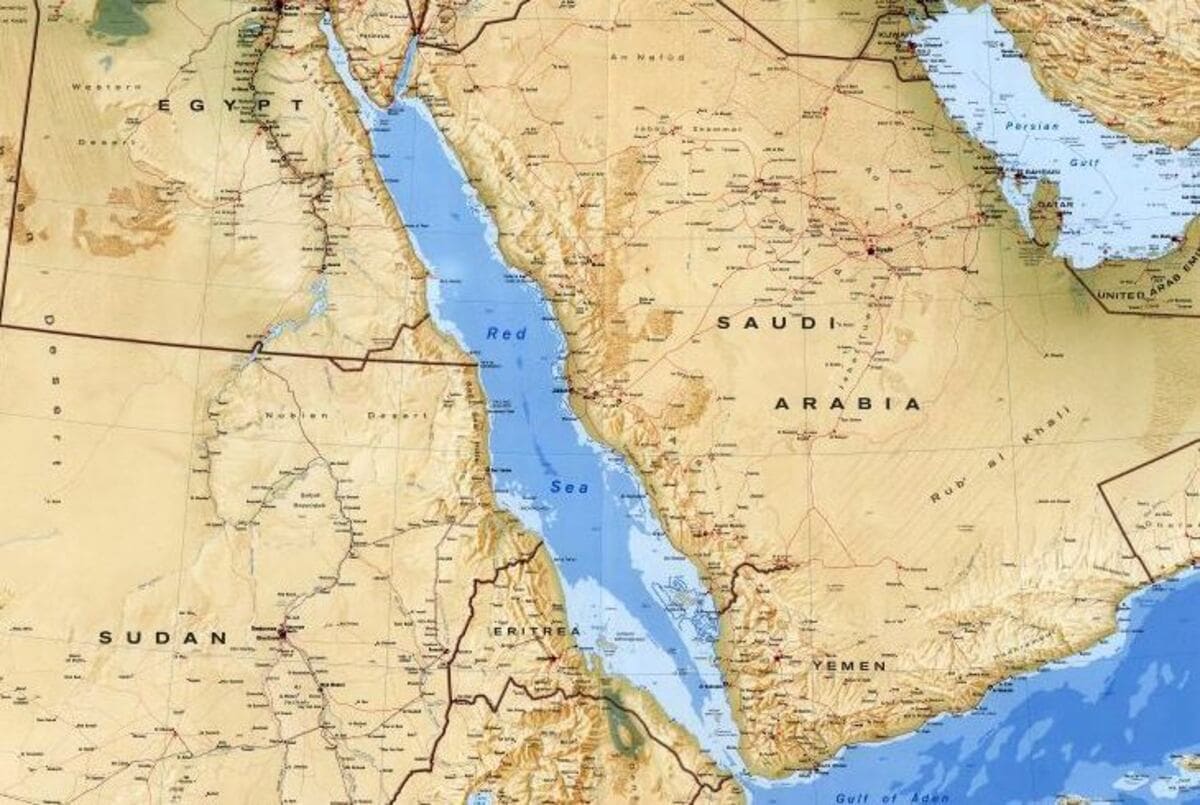
The events in the Red Sea, which have been the focus of global attention for the past two months, have a direct impact on the delay in the delivery of sea cargo. What is the reason for these disruptions in the logistics chain, what consequences can we expect for global trade, and what are the experts' forecasts for resolving this situation? Let's take a closer look at all this.
Since November 2023, Houthi rebels, supported by Iran, have carried out a series of attacks with drones and anti-ship missiles on cargo ships in the Red Sea. They characterize their actions as a demonstration of solidarity with Hamas and aim to stop Israel's powerful air and ground offensive against the Gaza Strip. The Yemeni rebels have also clearly stated that they will prevent the passage of ships heading to Israeli ports through the Red Sea until their counterparts in the Gaza Strip receive the necessary food and medicine.

Infographic of attacks on ships in the Red Sea and the region in recent weeks.
The world's largest shipping companies, such as MSC, Maersk, Hapag-Lloyd and our partner CMA CGM, realizing that commercial flights not only to Israel are at risk, have refused to transit through the Suez Canal. For an indefinite period of time, cargo will be transported by a detour of several thousand kilometers around the southern tip of Africa and the Cape of Good Hope, which will, of course, significantly affect the delivery time.
The Red Sea is framed in the north by the Suez Canal and in the south by the narrow Bab el Mandeb Strait, which connects it to the Gulf of Aden in the Arabian Sea. Such geographical advantages make the Red Sea waters a major trade corridor between Asia and Europe.

The geographical location of the Red Sea.
It accounts for 10 to 15% of global trade and 30% of maritime containerized cargo. Goods that usually travel this route:
It is clear that the change in delivery routes is caused by security issues. But this will not go unnoticed by the transportation and trade industries. So, the predicted consequences are as follows:
However, it is still difficult to predict the exact extent of these consequences, as they will depend primarily on the speed of neutralizing the threat posed by Houthi attacks.
The United States of America, with the support of the United Kingdom, Bahrain, Canada, France and other countries, launched the international naval operation Prosperity Guardian aimed at deterring Yemeni rebels. Some companies, such as Maersk and CMA CGM, reassured by this immediate response from the international community, began to develop a plan to optimize shipping routes and resume shipping through the Suez Canal.
The logistics company DiFFreight team is closely monitoring this situation, hoping for a speedy resolution and sharing the latest news in our telegram channel. Follow us: https://t.me/difreight_china

